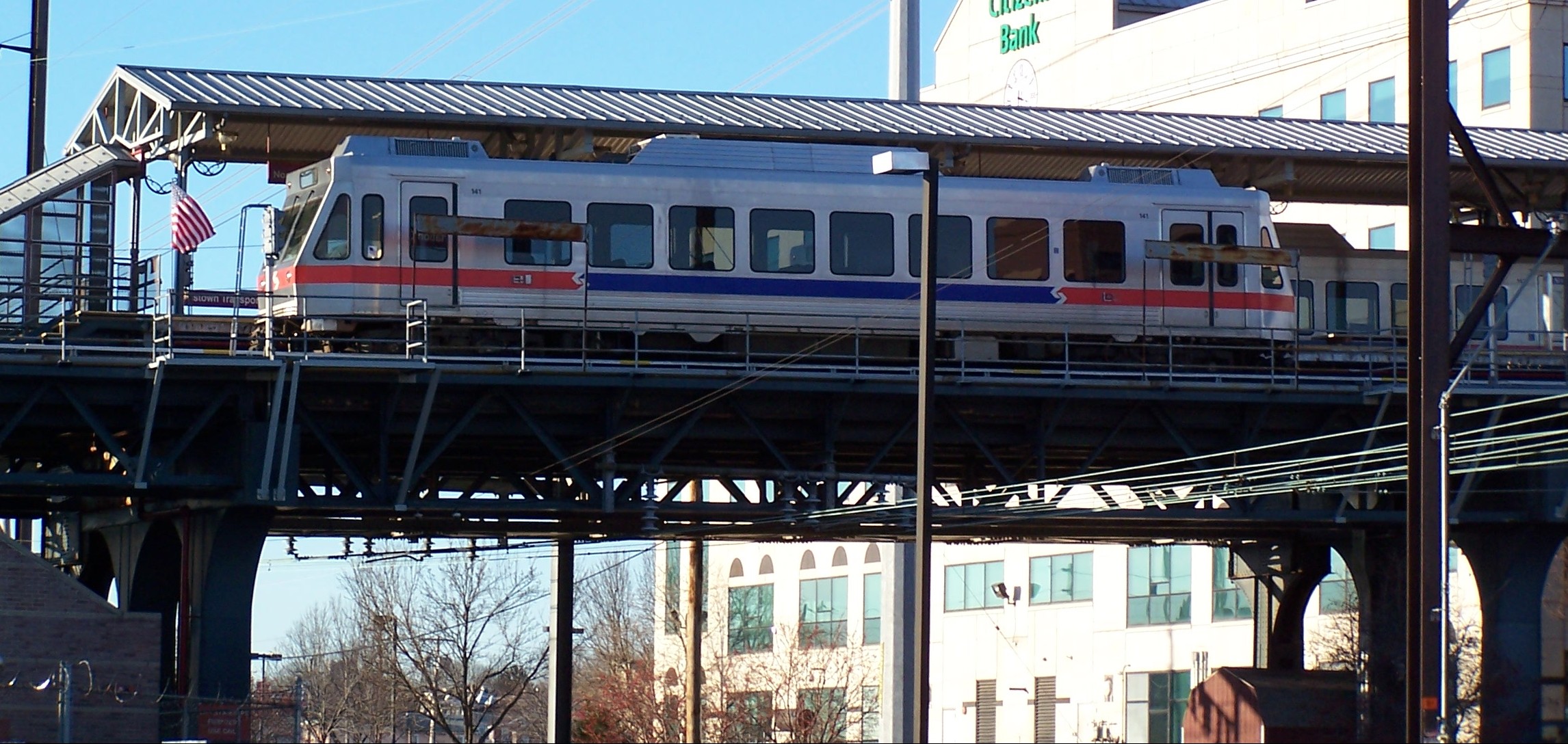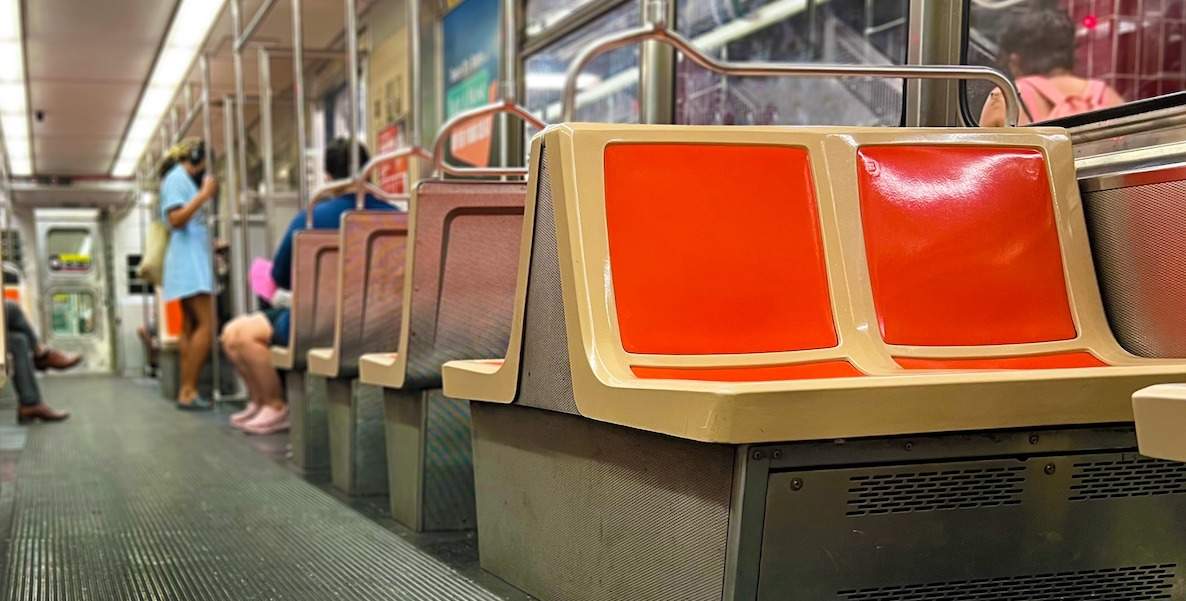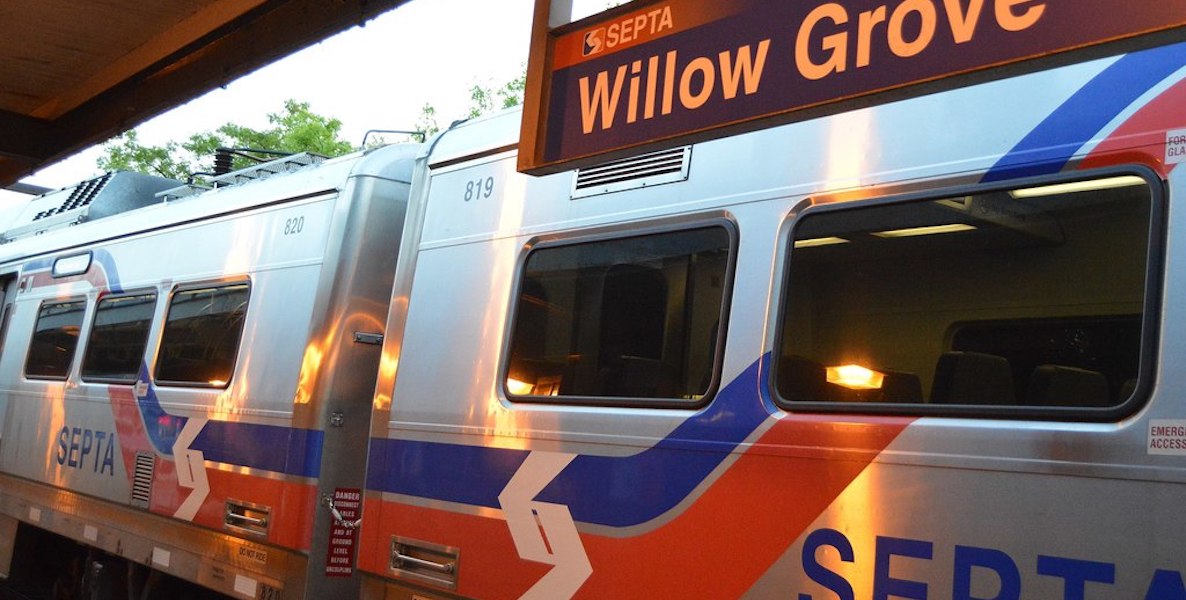Last Wednesday, SEPTA made a public warning that a newly proposed state budget would cause the agency to cut service by 40 percent, raise fares and lay off 500 people. In essence, this would be the beginning of the end for public transit in Philly.
Be Part of the Solution
Become a Citizen member.SEPTA is already reeling—the crashes and cracks aren’t as big of a problem as the fact that ridesharing has eaten into transit’s customer base and diluted advocacy for public transit. SEPTA is not alone in this situation: The service and infrastructure problems in New York’s subway and DC’s Metro are regularly covered by traditional and social media. Fixing transit isn’t cheap, quick or easy, and no one wants to pay for it.
But that doesn’t mean we should give up on SEPTA. Five years ago, I wrote about SEPTA’s problems—its slow buses, its onerous transfer charge, its lack of transparency and communication, and its lame slogan. Except for SEPTA’s disowning of its old “we’re getting there” motto, these problems all still stand.
![]() And yet, Philadelphia would be far worse off if SEPTA diminished into the kind of public transit agency you see in too many other American cities—the choice of last resort for the people with the fewest choices.
And yet, Philadelphia would be far worse off if SEPTA diminished into the kind of public transit agency you see in too many other American cities—the choice of last resort for the people with the fewest choices.
Here are a few thoughts on what SEPTA needs to change to remain viable:
- SEPTA needs to pick up the pace—both in terms of its transit and in terms of its project delivery. The bus and train lines that SEPTA operates run too slowly and infrequently to compete with Uber, and eventually with driverless cars. Ignoring speed as a priority is like a store ignoring price—it’s the top issue when deciding whether to take SEPTA, UberPool, a bike, walking or driving. While other cities have pushed for bus-rapid transit, we have too long accepted the opposite: buses that stop on every block. While other cities would kill to have the infrastructure of our suburban rail lines, we barely run those trains, especially on weekends. A major rethinking of the bus system is underway, but given SEPTA’s record with the much delayed Key system, this may take years to roll out. This is unacceptable, and we need transit advocates to partner with local city council members to push for faster, streamlined service.
- SEPTA and the broader civic leadership community need to agree that their fates are intertwined. Slow, erratic transit is a drain on Philly’s economy, making it harder for people to get to their jobs. Like the parks and schools that are the drivers of Mayor Kenney’s Rebuild agenda, affordable public transit is part of the backbone of a healthy, equitable, economically viable region. But transportation isn’t framed as part of the solution to the city’s twin problems of inequality and economic competitiveness. As a start, the Chamber of Commerce should reconvene the public and private partners it assembled to discuss infrastructure when it was a Trump administration agenda item; instead of focusing on broader infrastructural needs, this committee should address SEPTA’s unique assets and challenges. Council President Darrell Clarke famously focuses on parking and driving. And yet, transportation so often determines where people live, what jobs they can access, and what parts of the city they visit. As a start, SEPTA, the city’s Office of Transportation & Infrastructure Systems department, and the Chamber should start a committee dedicated to transportation.
- With a rural-focused, GOP-led state government, SEPTA needs to look to other funding sources. While SEPTA is forced to balance its budget and do more with less government funding, rideshare companies like Uber get venture capital and continuously invest in perfecting their service. SEPTA needs to find new, strategic sources of capital. It needs to engage private companies and philanthropies about an array of transportation investments. Cities like Baltimore,
 Cleveland and Detroit have privately financed major pieces of transportation. In Detroit, that looks like a brand new 3.3 mile, 20-station light rail line called the QLine, with the local Kresge Foundation pitching in $50 million. Locally, one example is the proposed new #49 bus line that would bring people from Strawberry Mansion and Grays Ferry to jobs in University City. Penn and Drexel would be obvious sources of funding for this line, and perhaps that funding could help speed up the implementation of the line (which has sadly been deferred). Other opportunities to bring in new funding sources include the Broad Street extension to the Navy Yard and the new Roosevelt Boulevard rapid bus line.
Cleveland and Detroit have privately financed major pieces of transportation. In Detroit, that looks like a brand new 3.3 mile, 20-station light rail line called the QLine, with the local Kresge Foundation pitching in $50 million. Locally, one example is the proposed new #49 bus line that would bring people from Strawberry Mansion and Grays Ferry to jobs in University City. Penn and Drexel would be obvious sources of funding for this line, and perhaps that funding could help speed up the implementation of the line (which has sadly been deferred). Other opportunities to bring in new funding sources include the Broad Street extension to the Navy Yard and the new Roosevelt Boulevard rapid bus line.
Time is of the essence. With driverless cars poised to infiltrate cities in the coming decade, mass transit has a limited window to prove its relevance. What can mass transit do that privately run, profit driven transit can’t? Make better use of the infrastructure it already has. SEPTA has thousand of feet of rail, hundreds of buses, and a user base that has often chosen to live near its service. With this kind of headstart, SEPTA has to make sure it doesn’t squander its advantages.
Diana Lind, a Citizen board member, is Managing Director of the Penn Fels Policy Research Initiative.
Header Photo: Flickr






